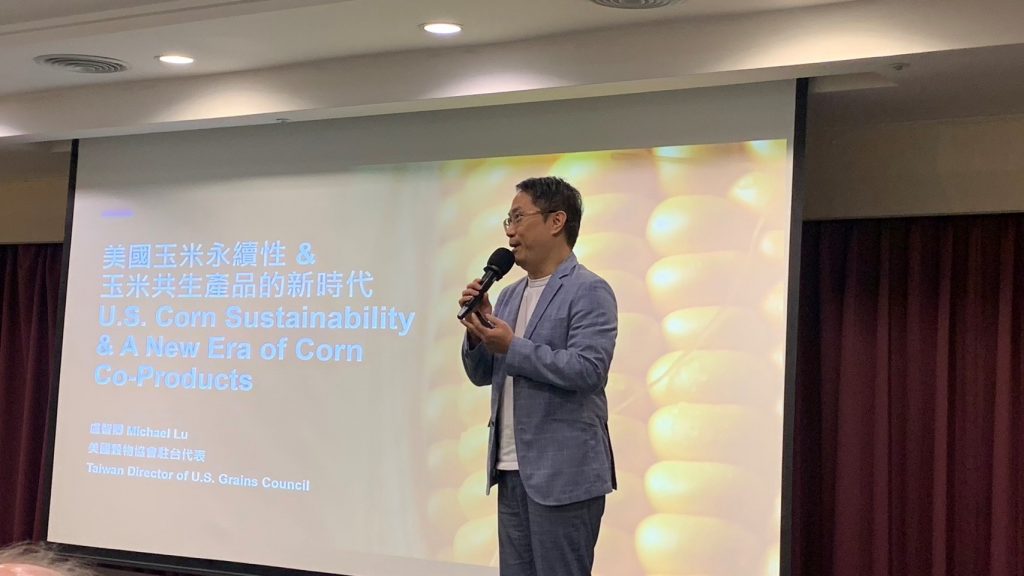Last week, the U.S. Grains Council (USGC), the Ministry of Agriculture of Taiwan and Chinese Culture University’s department of animal science jointly held the second Symposium on Swine Genetic Improvement and Ultrasonic Technology in Taichung, Taiwan.
The symposium is one of the most important events in Taiwan’s hog industry, attracting more than 100 participants including pig breeders, animal feed nutritionists, agricultural governmental officers, animal nutrition and veterinary professors/researchers and students. The key themes of this year’s seminar included challenges and opportunities for swine improvement in Taiwan; swine genetic improvement; and the application of ultrasonic technology in swine production, among others.
“The Council’s Taiwan office will continue supporting this important event to help the swine industry continue to improve production efficiency, and to enhance relationships with industrial stakeholders including producers, researchers, professors and government officials,” said Michael Lu, USGC director in Taiwan.
Lu spoke on U.S. corn sustainability and the new era of corn co-products during the seminar. Lu’s presentation reinforced the importance of sustainable agriculture and introduced the use of corn co-products, including commodity distiller’s dried grains with solubles (DDGS), corn fermented protein (CFP), high protein DDGS and corn protein concentrate in swine feeding applications. He highlighted how the use of corn co-products in feed can provide various benefits to hog farmers, like reducing cost by replacing expensive ingredients and improving animal health with growth and health promoting components.
About The U.S. Grains Council
The U.S. Grains Council develops export markets for U.S. barley, corn, sorghum and related products including distiller’s dried grains with solubles (DDGS) and ethanol. With full-time presence in 28 locations, the Council operates programs in more than 50 countries and the European Union. The Council believes exports are vital to global economic development and to U.S. agriculture’s profitability. Detailed information about the Council and its programs is online at www.grains.org.

